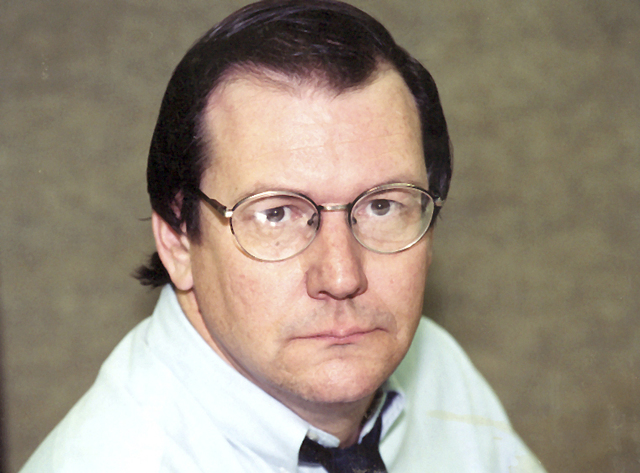Myers: John Lewis knows what he’s talking about
The first time John Lewis marched across the Edmund Pettus Bridge outside Selma, in 1965 on the way to the Alabama state capitol during a voter registration campaign, police were waiting for him and his colleagues on the other side. Officers fractured Lewis’ skull.
When Lewis marched across the bridge 46 years to the day later on a day of commemoration, U.S. Sen. Harry Reid of Nevada marched alongside him. As they crossed, he explained to Reid what had happened during the first march.
Two years before the first Selma march, Lewis had been attacked, his face torn up and ribs kicked because he was in a whites-only waiting room in a South Carolina bus station. On another occasion, a bus in which he was riding was bombed by Klan members trying to prevent desegregation of buses.
When Rep. Lewis last week questioned the legitimacy of Donald Trump as president-designate, it was not an unearned judgment. The understanding Lewis places on moral values like equality, fairness, and representation in a democracy comes from having to pay a price for them.
By contrast, Donald Trump’s lack of understanding of values made him go straight into attack mode instead of responding to Lewis’s actual comments. This is what Lewis said about Trump, referencing the alleged Russian interference in the election: “You know, I believe in forgiveness. I believe in trying to work with people. It will be hard. It’s going to be very difficult. I don’t see this president-elect as a legitimate president.”
This was Trump’s response: “Congressman John Lewis should spend more time on fixing and helping his district, which is in horrible shape and falling apart (not to mention crime-infested) rather than falsely complaining about the election results. All talk, talk, talk – no action or results. Sad.”
If you read both men’s comments, you will notice that Trump did not respond to what Lewis said.
There is a propaganda technique called “ad hominem,” a Latin term that means attacking a critic instead of attacking the critic’s arguments.
A lot of members of the public feel the same way Lewis does. Trump could have used the opportunity to explain to the public why he believes he has the right to be president after most U.S. citizens voted against him. He could explain how, as president, he will be able to act as a moral leader if he accepts the presidency in spite of the public’s vote.
That, however, would mean engaging on the issue Lewis raised. Trump has made it plain he is not sure of himself on issues and doesn’t like answering questions and especially follow-up questions. It’s likely part of the reason he avoids holding news conferences. Until he held a rare news conference on Jan. 11, he had gone six months without one. If he is too timid to face reporters, or too unprepared, or too unable to hold his own in a discussion, what are the chances he will be able to handle the German chancellor, French president, Russian president – or, for that matter, the leaders of Congress?
His response to Lewis raises other questions about his values, too. Note that he described Georgia U.S. House District 5 as “in horrible shape and falling apart (not to mention crime-infested).”
Actually, the district – which includes most of Atlanta – contains five universities, an array of the headquarters of major international corporations like Coca-Cola, the renowned Centers for Disease Control, a higher income than the Georgia state median, 4.8 percent joblessness (in Atlanta proper; there is no current figure for district 5), and a declining crime rate. There has recently been a rise in homicides, but that is not specific to district 5 – it is a national trend.
Why did Trump assume that an African-American House member’s district would be a crime-ridden hell hole? Maybe we can ask him, if he ever shakes his fright and subjects himself to scrutiny at a news conference again.
Dennis Myers is an award-winning journalist who has reported on Nevada’s capital, government and politics for several decades. He has also served as Nevada’s chief deputy secretary of state.

















